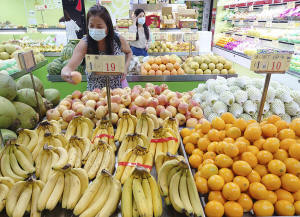|
The
Taiwanese government’s Mainland Affairs Council said the ban,
which takes effect next week, ignores rules laid out by the
World Trade Organization, of which both sides are members.
The move comes amid growing military, political and economic
pressure on Taiwan’s government to concede to Beijing’s control.
Taiwan’s semi-tropical climate and fertile soil have nurtured an
agricultural industry valued at around $500 billion dollars,
alongside high-tech corporations that produce the world’s most
cutting-edge computer chips.
China's move “harms the interests of farmers” on both sides of
the Taiwan Strait and does nothing to improve relations between
the two, the council said. China and Taiwan should seek dialogue
through the WTO to resolve their differences, it added.
The WTO is one of the few forums through which discussion is
possible between the two sides, which divided amid civil war in
1949. Chinese diplomatic pressure has barred Taiwan from the
United Nations and reduced its number of official diplomatic
allies to 12.
The Chinese ban appears to target rural Taiwanese, who for the
past two decades have largely voted for pro-independence
candidates but whose local officials have been courted by China
with all-expense vacations and other enticements.
China has used trade pressure on countries such as Australia,
South Korea and Norway over perceived political slights, using
its market for resources and consumer goods as leverage, with
mixed results.
All contents © copyright 2024 Associated Press. All rights
reserved

|
|




